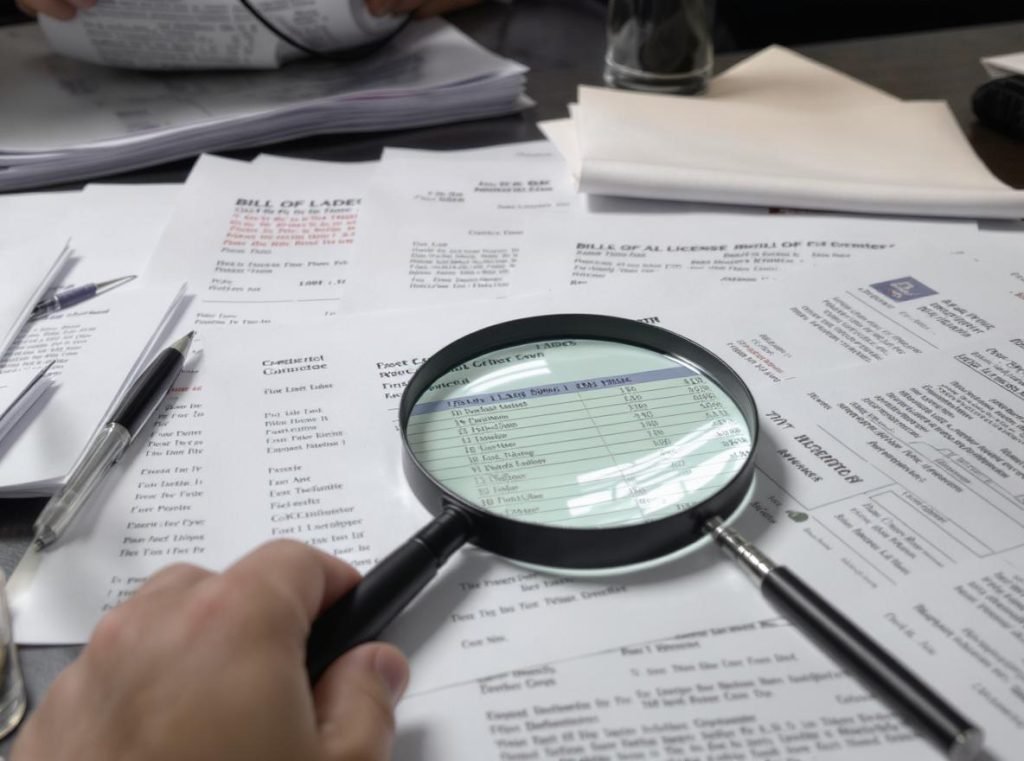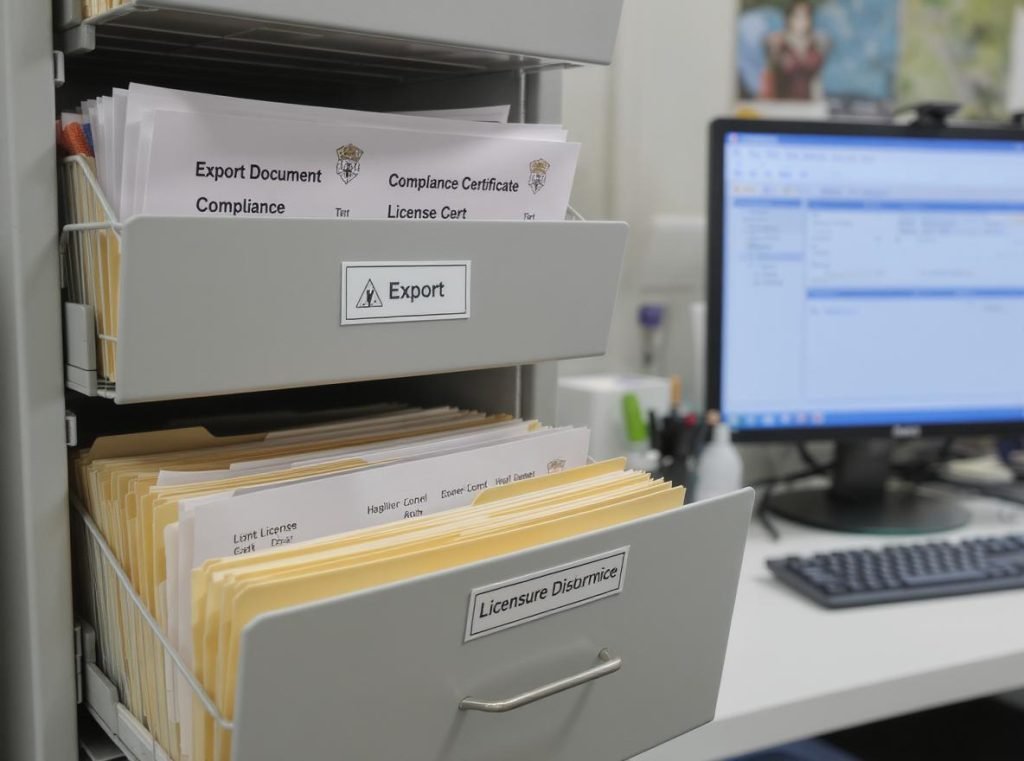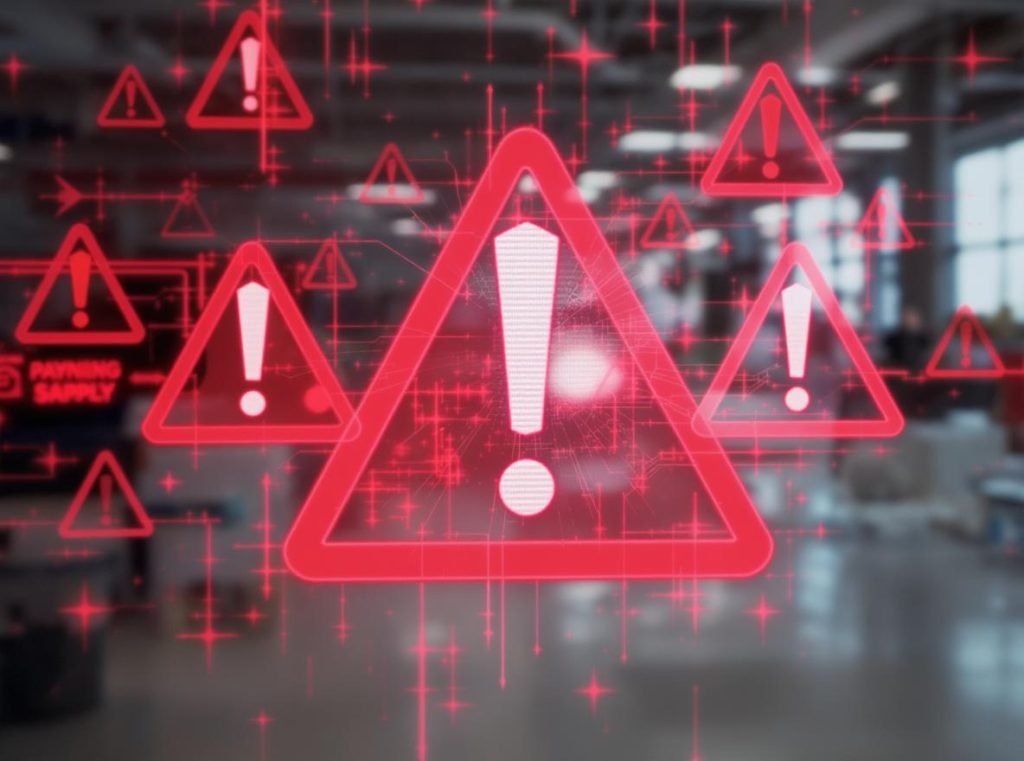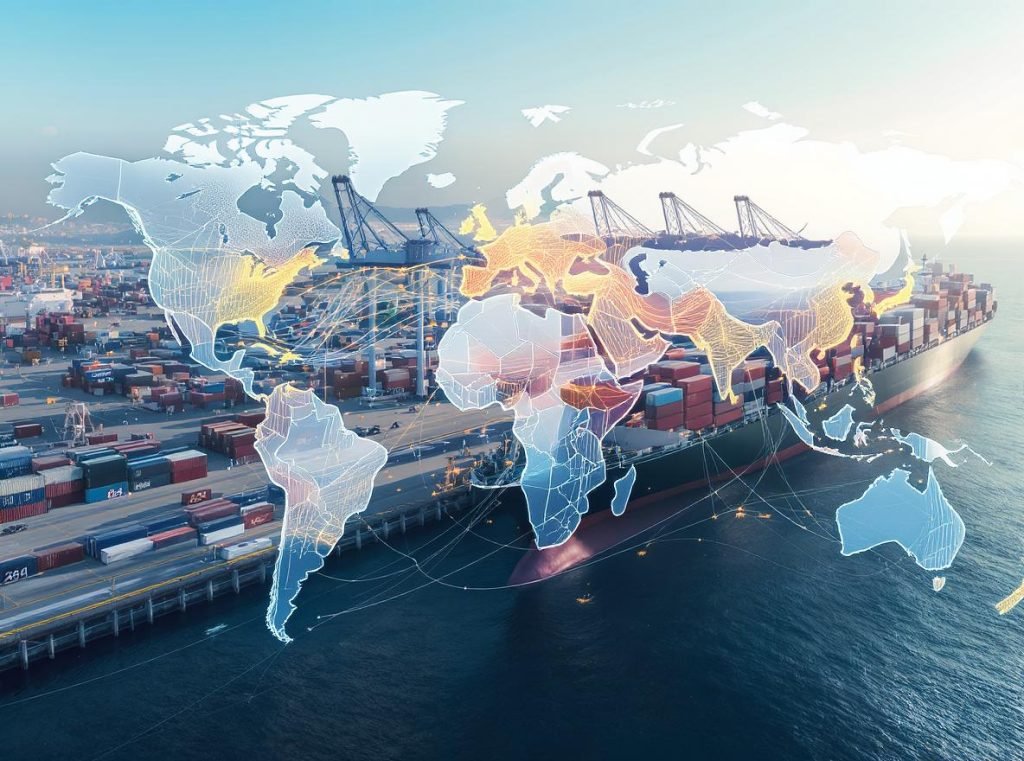Finding the right international supplier can make or break your business success. Many companies struggle with unreliable partners who promise the world but fail to deliver when it comes to export requirements, customs documentation, and international shipping logistics.
The key to finding export-experienced suppliers lies in leveraging verified B2B platforms like Alibaba’s Verified Supplier program, conducting thorough documentation verification including export licenses and shipping records, and implementing structured partnership approaches starting with small test orders. Focus on suppliers with proven track records, proper certifications, and established compliance systems.
Let’s dive deeper into the proven strategies that successful businesses use to identify and partner with reliable export-experienced suppliers worldwide.
Table of Contents
ToggleWhat Makes a Supplier “Export-Experienced”?
Understanding what constitutes genuine export experience goes beyond basic claims of international sales. True export expertise involves demonstrating measurable competencies in global trade operations.
Export-experienced suppliers demonstrate comprehensive knowledge of international trade regulations, maintain proper export licenses and certifications, possess established quality management systems like ISO 9001, and show consistent export patterns with regular shipments to international markets over multiple years.

Export experience encompasses several critical competencies that separate amateur suppliers from seasoned professionals. A truly experienced exporter has developed robust systems for handling international documentation seamlessly, including commercial invoices, packing lists, certificates of origin, and specialized documentation your country requires.
These suppliers understand Export Control Classification Numbers (ECCNs) for their products and maintain proper export license management systems. They track license lifecycles from application through expiration and implement automated alerts for renewals and reporting deadlines.
Quality control becomes even more crucial in international trade. Experienced exporters maintain rigorous quality assurance protocols and often hold international certifications like ISO 9001, ISO 22000 for food safety, or ISO 14001 for environmental management. They understand that product defects discovered after long shipping journeys create massive headaches for importers.
Professional export suppliers also demonstrate cultural competency and communication skills necessary for international business. They understand cultural differences in communication styles, business practices, and decision-making processes across various markets.
| Experience Indicator | What to Look For | Verification Method |
|---|---|---|
| Export Licenses | Current permits for specific products | Direct verification with authorities |
| Quality Certifications | ISO 9001, industry-specific standards | Certificate validation with issuing bodies |
| Shipping Patterns | Regular exports over multiple years | Trade database analysis |
| Documentation Systems | Professional invoice/packing procedures | Sample document review |
| Compliance Programs | Restricted party screening processes | Procedure documentation review |
Where Can You Find Verified Export Suppliers?
The digital age has revolutionized supplier discovery, but knowing where to look and how to leverage verification systems makes the difference between finding reliable partners and wasting time on unsuitable candidates.
Alibaba.com’s Verified Supplier program requires suppliers to undergo third-party audits by internationally recognized inspection companies like SGS, TÜV Rheinland, and Intertek, verifying business legitimacy, production capabilities, quality control measures, and export qualifications through comprehensive on-site inspections.

Digital B2B platforms have become the primary starting point for international supplier discovery. Alibaba.com leads with its sophisticated Verified Supplier program that categorizes suppliers into three types: Custom Manufacturers for high customization needs, Multi-specialty Suppliers offering low minimum order quantities and end-to-end logistics, and Brand Holders with established distribution capabilities.
The verification process includes detailed audit reports and on-site videos that help buyers assess supplier capabilities remotely. These audits examine business registration, production facilities, quality control systems, export documentation, and financial stability.
Other significant platforms include Global Sources focusing on verified Asian suppliers, ThomasNet for North American manufacturers, and IndiaMART for Indian suppliers. Each platform offers different verification levels and comparison tools for supplier assessment.
Industry trade shows remain invaluable for face-to-face supplier evaluation. Events like the Canton Fair in China, Anuga in Germany for food products, and regional exhibitions provide opportunities to meet suppliers directly, examine product samples, and assess communication skills and professionalism.
Government trade promotion agencies offer another reliable resource. The U.S. Commercial Service maintains supplier databases and provides verification assistance through local market knowledge. Many countries have similar trade promotion organizations with supplier directories and due diligence services.
- Utilize Alibaba’s Verified Supplier program for comprehensive third-party audits
- Attend industry trade shows for direct supplier interaction and assessment
- Contact government trade promotion agencies for verified supplier databases
- Leverage industry associations and chambers of commerce for member referrals
- Consider professional sourcing agents with established supplier networks
How Do You Verify a Supplier’s Export Track Record?
Verification separates successful importers from those who learn expensive lessons through failed partnerships. Professional verification combines documentation review with third-party assessment services.
Professional verification requires examining export licenses and permits, reviewing previous shipping documents including bills of lading and commercial invoices, conducting financial stability assessments through credit reports, and utilizing third-party inspection services like SGS or Bureau Veritas for comprehensive capability evaluations.

Documentation verification forms the foundation of supplier assessment. Request copies of current export licenses and permits, ensuring they cover your specific product categories. Verify business registration documents and confirm the company’s legal authorization for international trade.
Examine previous shipping documents including bills of lading, commercial invoices, packing lists, and certificates of origin from recent exports. These documents provide concrete evidence of export activity and demonstrate familiarity with international documentation requirements.
Financial stability assessment involves reviewing recent financial statements, credit reports, and audited accounts. Utilize services like Dun & Bradstreet for detailed business credit reports including company financials and payment history. Financial stability ensures suppliers can fulfill orders and maintain long-term relationships.
Third-party verification services provide objective assessments when personal visits aren’t practical. Companies like SGS, Bureau Veritas, and Intertek offer comprehensive programs evaluating supplier legality, business capacity, production capabilities, quality control systems, and certifications.
Customer reference verification provides invaluable performance insights. Contact previous customers, particularly those in your region or with similar import requirements. Ask specific questions about delivery performance, product quality, communication effectiveness, and problem resolution capabilities.
Quality management system verification includes reviewing ISO certifications, quality control procedures, testing capabilities, and defect rates. Professional exporters welcome quality inspections and can describe their quality management systems in detail.
| Verification Area | Documentation Required | Professional Services |
|---|---|---|
| Legal Authorization | Export licenses, business registration | Government database verification |
| Export History | Bills of lading, shipping records | Trade database analysis |
| Financial Stability | Financial statements, credit reports | Dun & Bradstreet assessments |
| Production Capability | Facility photos, equipment lists | SGS/Bureau Veritas inspections |
| Quality Systems | ISO certificates, inspection reports | Certification body verification |
What Questions Should You Ask Potential Export Suppliers?
The right questions reveal supplier capabilities and commitment levels while demonstrating your professionalism and seriousness as a potential partner.
Essential questions include regulatory compliance capabilities (“Do you have necessary export licenses for our products?”), operational capacity (“What are your typical lead times and minimum orders?”), quality control procedures (“What certifications do you maintain?”), and logistics partnerships (“Which freight forwarders do you work with?”).

Regulatory and compliance questions help assess export expertise and legal authorization. Ask about export licenses and permits for your specific products, understanding of destination country requirements, and compliance procedures for export control regulations and restricted party screening.
Professional exporters should understand Export Control Classification Numbers (ECCNs) and explain their license management processes. They should demonstrate knowledge of your country’s import requirements and be able to provide necessary documentation and certifications.
Operational questions reveal capacity and reliability indicators. Inquire about typical production lead times, with industry norms suggesting 30-40 days maximum for most products. Significantly longer timeframes may indicate capacity constraints or operational inefficiencies.
Ask about minimum order quantities, production capacity, and scalability options. Understanding capacity limitations helps avoid future supply disruptions as your business grows.
Quality control inquiries should cover quality management systems, inspection procedures, defect rates, and problem resolution protocols. Request information about quality certifications, testing capabilities, and willingness to allow customer inspections during production.
Logistics and shipping questions assess export infrastructure and partnerships. Ask about packaging procedures for international shipment, preferred shipping terms and Incoterms, freight forwarder relationships, and tracking systems.
Financial and commercial questions help evaluate business practices and stability. Inquire about payment terms, with industry norms typically requiring 30% upfront rather than 70-100%. Ask about price stability, additional cost handling, and capacity for handling your projected volumes.
Communication assessment questions determine professionalism and relationship potential. Ask about primary contacts, decision-making authority, language capabilities, and familiarity with your market’s business practices.
- Do you have current export licenses for the products we’re interested in?
- What quality certifications do you maintain, and can we verify them?
- What are your typical lead times including production and shipping?
- Which freight forwarders do you work with for our destination?
- Can you provide references from customers in our region?
- What are your standard payment terms and accepted payment methods?
- How do you handle quality issues discovered after international shipping?
- What documentation can you provide for imports into our country?
How Can You Assess Export Documentation and Compliance Capabilities?
Documentation errors cause expensive delays, customs penalties, and damaged business relationships. Assessing supplier documentation capabilities early prevents costly surprises and ensures smooth international transactions.
Professional export suppliers maintain comprehensive documentation systems including commercial invoices, packing lists, certificates of origin, and bills of lading. They understand Export Control Classification Numbers (ECCNs), maintain proper export license management systems, and implement restricted party screening procedures for compliance.

Export licensing verification forms the foundation of compliance assessment. Professional suppliers understand ECCNs for their products and know when export licenses are required. They maintain automated systems for tracking license lifecycles and ensure compliance with license conditions.
Request demonstration of their license management systems and procedures for monitoring regulatory changes. Professional exporters implement systems that provide real-time visibility into license status and automate alerts for renewals and reporting deadlines.
Documentation system evaluation reveals operational sophistication. Commercial invoices serve as legal documents between exporter and buyer, clearly stating goods being sold and amounts to be paid. These must contain accurate product descriptions, quantities, prices, and terms of sale for customs verification.
Packing lists provide detailed information about package contents including type, quantity, and weight of goods. Export packing lists are considerably more detailed than domestic versions and must accurately reflect actual shipment contents.
Certificates of origin validate the country where goods were produced, particularly important when exported goods are subject to trade agreements or preferential duty rates. Professional suppliers understand when these certificates are required and can provide properly authenticated versions.
Compliance monitoring capabilities indicate sophisticated operations. Professional exporters maintain systems for tracking regulatory changes, assessing impact on operations, and implementing necessary changes. They conduct internal compliance audits and maintain corrective action processes.
Restricted party screening represents a crucial compliance component. Suppliers must screen all transaction parties against denied person lists, sanctioned entity lists, and other restricted party databases. Professional exporters maintain regular screening procedures and can demonstrate their protocols.
| Documentation Type | Purpose | Compliance Requirements |
|---|---|---|
| Commercial Invoices | Legal sale documents | Accurate descriptions, pricing, terms |
| Packing Lists | Shipment content details | Complete quantity and weight information |
| Certificates of Origin | Country of manufacture proof | Proper authentication for trade agreements |
| Export Licenses | Legal export authorization | Current permits for specific products |
| Bills of Lading | Shipping contracts and receipts | Correct carrier and destination details |
What Red Flags Should You Watch for When Evaluating Suppliers?
Recognizing warning signs early saves time, money, and prevents business disruptions. Experienced importers develop instincts for spotting problematic suppliers before committing to partnerships.
Major red flags include reluctance to provide basic company information, demands for 70-100% upfront payment when industry norms require only 30%, inability to provide proper export licenses or business registration documents, unusually low pricing that seems “too good to be true,” and inconsistent information across different platforms or communications.

Communication and operational red flags often appear first in supplier interactions. Be cautious of suppliers who provide evasive answers about company identity, maintain inconsistent contact information across platforms, or show reluctance to engage in video calls or face-to-face meetings.
Professional suppliers readily share company registration documents, contact information, and management details. They maintain consistent communication channels and demonstrate willingness for direct communication.
Financial red flags require immediate attention. Demands for 70-100% upfront payments significantly exceed industry norms of 30%. Requests for payments to third parties rather than the supplier directly, or payments to offshore bank accounts, often indicate fraudulent operations.
Be wary of suppliers with no established business background, companies less than five years old without adequate references, or evidence of financial instability. While newer companies can be legitimate, additional due diligence becomes essential.
Documentation red flags indicate serious operational problems. Suppliers unable to provide proper business registration documents, showing inconsistencies between stated information and official documents, or refusing to share previous shipping documentation should raise immediate concerns.
Export compliance red flags include suppliers unfamiliar with basic export requirements, unable to explain export control procedures, or unwilling to discuss compliance screening processes. Professional exporters understand their obligations and articulate procedures clearly.
Pricing irregularities often indicate problems. Unusually low prices that seem “too good to be true” typically indicate inferior quality, counterfeit products, or fraudulent operations. Professional suppliers price competitively but realistically based on quality and market conditions.
Market-related red flags include suppliers offering products outside their stated business focus, items incompatible with their claimed location’s technical capabilities, or products unsuitable for the buyer’s business requirements.
- Evasive responses about company registration or ownership details
- Payment demands exceeding 30% upfront or requests for unusual payment methods
- Inability to provide current export licenses or business documentation
- Pricing significantly below market rates without clear explanations
- Inconsistent company information across different platforms or communications
- Reluctance to allow facility visits or third-party inspections
- No verifiable customer references or shipping history
- Unfamiliarity with basic export requirements or compliance procedures
How Should You Structure Initial Supplier Partnerships?
Smart partnership structuring protects your interests while giving suppliers opportunity to prove their export capabilities through manageable risk levels and clear performance expectations.
Structure initial partnerships with small test orders to evaluate performance, implement comprehensive contracts defining responsibilities and terms, establish clear communication protocols and performance metrics, and build in milestones that must be met before increasing order volumes or expanding product ranges.

Test order strategies minimize initial risk while providing valuable performance data. Begin with smaller quantities than your ultimate needs, allowing evaluation of quality, delivery times, packaging, and documentation without major financial exposure. Successful test orders build confidence for larger commitments.
Industry norms suggest starting with 30-40 day lead times maximum, and be cautious of suppliers promising significantly faster delivery without understanding your specific requirements. Professional exporters provide realistic timelines accounting for production, quality control, export documentation, and shipping transit.
Contract specifications should address export-specific concerns beyond basic product requirements. Include clauses covering export documentation responsibilities, shipping terms and Incoterms, insurance responsibilities, and procedures for handling customs delays or inspections.
Essential contract elements include precise product specifications with detailed descriptions, quantities, quality standards, and required certifications. Pricing terms must specify currency, whether prices are fixed or adjustable, and adjustment calculation methods.
Payment term structuring should balance supplier cash flow needs with risk management requirements. Consider letters of credit for initial orders, particularly with new suppliers, as they provide security for both parties while demonstrating financial credibility.
Performance standards require clear metrics addressing quality standards, delivery performance, communication effectiveness, and compliance adherence. Key performance indicators should be measurable, relevant, and aligned with business objectives.
Communication protocols establish expectations for information sharing throughout the export process. Define when and how suppliers should provide production updates, shipping notifications, and tracking information. Regular communication helps identify potential issues before they become serious problems.
Risk management strategies should address potential risks including currency fluctuations, payment delays, production disruptions, and logistics delays. Establish contingency plans and clearly define risk mitigation approaches.
Partnership evolution planning ensures relationships adapt to changing business needs over time. Regular strategic reviews maintain partnership alignment with evolving requirements and market conditions.
| Partnership Element | Initial Phase | Growth Phase |
|---|---|---|
| Order Quantities | Small test orders for evaluation | Gradual increases based on performance |
| Payment Terms | Letters of credit, 30% upfront maximum | Standard terms as trust develops |
| Quality Control | Detailed inspections required | Streamlined auditing systems |
| Communication | Frequent updates and reporting | Efficient established protocols |
| Performance Metrics | Strict monitoring and evaluation | Systematic scorecards and reviews |
Summary
Finding export-experienced suppliers requires systematic research using verified B2B platforms like Alibaba’s Verified Supplier program, thorough documentation verification including export licenses and shipping records, and careful assessment of compliance capabilities and quality certifications. Structure initial partnerships with small test orders, comprehensive contracts, and clear performance metrics while watching for red flags like unusual payment demands or inability to provide proper documentation. The investment in proper supplier selection and verification pays dividends through reliable supply chains and successful international trade relationships.

Looking for a packaging supplier with proven export experience and comprehensive compliance systems? Acreet has been manufacturing and exporting custom packaging solutions globally for over a decade, maintaining ISO certifications, established freight forwarder partnerships, and thorough documentation systems. Our verified export credentials and customer references across multiple continents demonstrate our commitment to reliable international trade partnerships. Contact us today to discuss your custom packaging requirements and experience the difference that genuine export expertise makes for your supply chain success.


